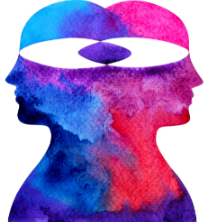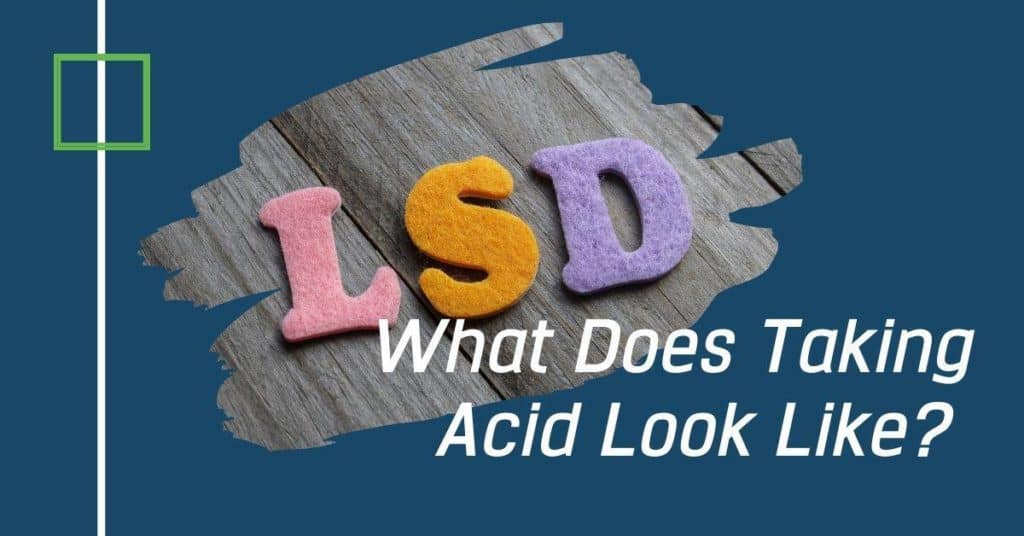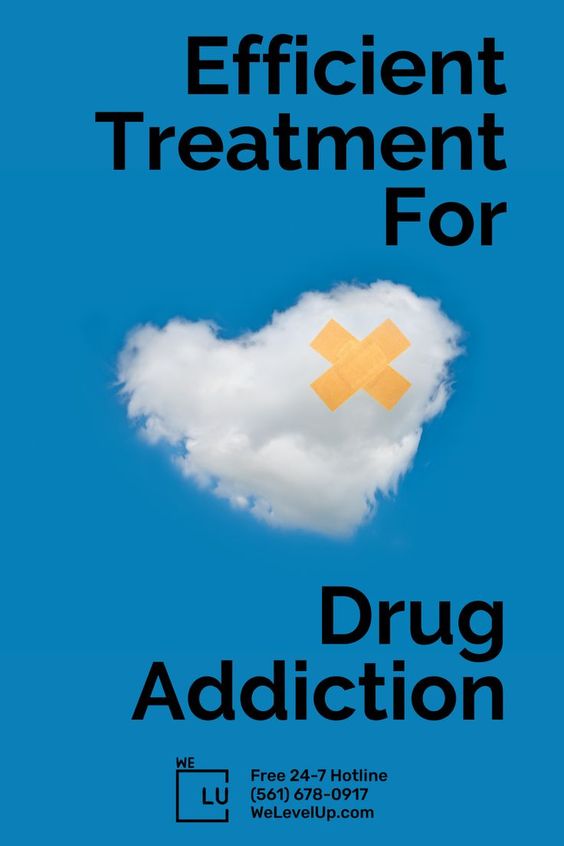Is LSD Addictive?
LSD is a psychedelic drug that can cause hallucinations, delusions, and drastic behavioral changes. Is LSD addictive? Yes. LSD addiction is real. LSD’s addictive effects can produce an emotionally dependent response. Although LSD’s addictiveness is not physical, but rather psychosocial, LSD can cause several long-term health problems, psychological dependence, or death. LSD (lysergic acid diethylamide), first synthesized in 1938, is a highly potent hallucinogen.
It is synthetically made from lysergic acid, which is found in ergot, a fungus that grows on rye and other grains. It is so potent its doses tend to be in the microgram (mcg) range. Its effects, often called a “trip,” can be stimulating, pleasurable, and mind-altering or lead to an unpleasant, sometimes terrifying experience called a “bad trip.”
What is LSD?
Lysergic acid diethylamide (LSD) is a potent psychoactive drug synthesized from ergot, a fungus that commonly grows on rye and other grains. Its hallucinogenic properties are so powerful that people measure their dosage in micrograms. As little as 25ug to 75ug (microdosing LSD), which users describe as a “mild experience,” can cause visual hallucinations, while a 700-1000ug can induce a “full out-of-body-experience.” The US Drug Enforcement Agency (DEA) classifies LSD as an illegal Schedule 1 controlled substance, which is very likely to be abused and has no documented use in medical treatments.
LSD is usually sold as small capsules, tablets, or liquids. A solution of liquid LSD is typically added to blotter paper and divided into decorated squares. LSD is almost always taken orally, but it may also be used via other routes, such as being dropped into the eye, and boofing LSD (inserting LSD into the rectum). Over the years, various street names have been used for the drug, including blotter acid, Dots, Mellow Yellow, Window Pane, and Yellow Sunshine.
How Addictive Is LSD?
How is LSD addictive? LSD is a powerful synthetic hallucinogen. The psychedelic drug can cause visual hallucinations and change a person’s mood, emotions, and perception. Because it has a high potential for abuse and no accepted medical use, LSD is illegal in the United States.
The drug is hazardous. It can damage the body, alter the mind and cause volatile behavior that threatens the safety of the LSD user and others. Chronic use can lead to long-term effects of LSD, such as health problems such as hallucinogen persisting perception disorder. The disorder causes flashbacks to spontaneous visual distortions that may reoccur months to years after quitting using LSD.
Several treatment options can effectively treat addiction to LSD. Encourage your friend or loved one to talk to their doctor or a treatment counselor about using rehab programs, substance abuse treatment, relapse prevention, or support groups as part of their recovery.
How is LSD Addictive?
LSD is addictive. The effects of addiction to LSD are psychological. LSD, also called acid, is a white or transparent crystal most commonly sold on the street as a tablet or capsule. The odorless drug can be crushed into a powder, dried on gelatin sheets, added to sugar cubes, or dissolved in water. In powder or liquid form, the drug can be inhaled or injected.
Powdered LSD can also be compacted into small balls known as microdots. In liquid form, it can transfer the substance onto an absorbent paper called a blotter. The drug is usually divided into tabs, which are small single-dose squares. Acid tabs or pills contain 20 to 80 micrograms of LSD. They can be swallowed, licked, or chewed.
LSD Addictiveness
Is LSD addictive like other controlled drugs? LSD addictiveness is not in the physical sense, as the body does not become physically dependent on it. However, people can become psychologically dependent on LSD, meaning they may experience cravings for the drug and continue to use it despite potentially harmful effects.
Addiction of LSD

Skip To:
- Is LSD Addictive?
- What is LSD?
- How Addictive Is LSD?
- Who Abuses LSD?
- How is LSD Addictive?
- LSD Drug Facts
- LSD Abuse Statistics
- Is LSD Physically Addictive?
- Four Reasons Why LSD Can Be Less Addictive
- Is LSD Addictive? & LSD Addiction Signs
- Can You Be Addicted to LSD? & Effects Of LSD Use
- Long Term Effects of LSD
- LSD Side Effects
- Is LSD Addictive? plus LSD Overdose Risks
- Managing LSD Abuse & Addiction To LSD
- Health Hazards And Flashbacks With LSD
- LSD Addiction Treatment
- Searched for “LSD Treatment Center?”
Learn More:
Who Abuses LSD?
Some people may inhale LSD through the nose (snort) or inject it into a vein (shoot it up). Unfortunately, there is no way to predict the amount of LSD contained in any form consumed. Can you be addicted to LSD? Yes, and adolescents abuse LSD more than any other age demographic, according to the 2016 National Survey on Drug Use and Health. The report found that about 209,000 people aged 18 to 25 were addicted to acid in 2016. Acid is common at dance clubs, alcohol and LSD mix, music festivals, and underground parties called raves. [1]
Other Hallucinogens include:
- Phencyclidine (PCP, Angel Dust)
- Ayahuasca (DMT)
- Salvia divinorum (Salvia)
- Psilocybin (Magic Mushrooms, Shrooms)
- Mescaline (Peyote, Buttons, Cactus)
Is acid addictive? When you or a loved one is addicted to acid, the most severe effects of addiction to LSD are likely to only happen after large and frequent doses, but they can be life-threatening. Extreme side effects may include hyperthermia, suicidal thoughts, and psychosis.

Get Your Life Back
Find Hope & Recovery. Get Safe Comfortable Detox, Addiction Rehab & Dual Diagnosis High-Quality Care.
Hotline(844) 597-1011LSD Drug Facts
What is LSD?
LSD is a potent hallucinogen that has a high
potential for abuse and currently has no accepted
medical use in treatment in the United States.
What is its origin?
LSD is produced in clandestine laboratories in the
United States.
What are common street names?
Common street names include:
- Acid
- Dots
- Mellow
- Yellow
- Window Pane
What is its legal status in the United States?
LSD is a Schedule I substance under the
Controlled Substances Act. Schedule I
substances have a high potential for abuse, no
currently accepted medical use in treatment in the
United States, and a lack of accepted safety for
use under medical supervision.
What does it look like?
LSD is an odorless and colorless substance with
a slightly bitter taste. LSD is available in saturated
absorbent paper (e.g., blotter paper, divided
into small, decorated squares, with each square
representing one dose), tablets or “micro dots,”
saturated sugar cubes, or in a liquid form.
How is it abused?
LSD is abused orally.
Is LSD Addictive?
The answer to “is LSD addictive”, is yes. While LSD is not considered physically addictive, it can be psychologically addictive. People can become dependent on the drug when they experience cravings and still choose to use it despite potential risks.
Is LSD Addiction a Problem? LSD Addictiveness.
There is a potential for LSD addiction. LSD’s addictiveness can be best seen in its psychological effects. People become addicted to LSD when they continue to use it despite potential risks. The degree of LSD addiction may vary from person to person and depends on the frequency, quantity, and duration of use.
If you or someone you know is struggling with LSD addiction, it is important to reach out for professional help.
LSD Addiction & Abuse Statistics
Individuals of all ages use LSD. Data reported in the National Household Survey on Drug Abuse indicate that an estimated 20.2 million U.S. residents aged 12 and older used LSD at least once in their lifetime. The survey also revealed that many teenagers and young adults use LSD–742,000 individuals aged 12 to 17 and 4.5 million individuals aged 18 to 25 used the drug at least once.
5.5+ million people
An estimated 5.5+ million people in the U.S. used hallucinogens in the past year, in 2019
Source: NIDA
4 %
LSD use between 2002 and 2019 increased overall and in all age groups, with the past 12-month rate increasing from 0.9 percent in 2002 to 4 percent in 2019
Source: NIDA
56.4%
LSD use in the US jumped 56.4% from 2015 to 2018
Source: NCBI
Is LSD Physically Addictive?
How is LSD addictive? People develop a tolerance to LSD with repeated use. This means they must use the drug more frequently or in higher doses to achieve the desired “high.” However, abusing acid does not lead to drug addiction because it does not cause physical cravings or compulsive drug-seeking behavior.
Four Reasons Why LSD Can Be Less Addictive
- Is LSD physically addictive? The drug’s effects last longer than other drugs, reducing the need to purchase the drug frequently.
- People use LSD infrequently because of its inconsistent effects and the potential for adverse reactions.
- Is LSD highly addictive? Tolerance develops rapidly, making it pointless to use the drug repeatedly.
- The powerful hallucinations produced by LSD cause people to avoid the substance to recover from its effects.
Although acid is not physically addictive, people can become psychologically dependent on the substance. While individuals may repeatedly use LSD to experience sensory hallucinations, most people wait extended periods before retaking the drug.
Is LSD Addictive? & LSD Addiction Signs
Can you get addicted to LSD? Yes, but LSD use can cause unpredictable effects. Some people enjoy their high, but others endure terrifying fear and feelings of despair. The drug alters a person’s mood, personality, and perception of time. How long do the effects of LSD last? The effects can last up to 12 hours, but LSD stays in your system for about five days.

Can You Be Addicted to LSD? & Effects Of LSD Use
Is LSD addicting? LSD is a mind-altering drug. LSD causes its characteristic hallucinogenic effects via interaction with the serotonin receptors in the brain. Serotonin is a neurotransmitter that helps control your behavior and mood, governs your senses, and moderates your thoughts. Usually, the first effects of the drug when taken by mouth are felt 30 to 45 minutes after taking it, peak at 2 to 4 hours, and may last 12 hours or longer. The intravenous (IV) route will produce a much quicker action, usually within 10 minutes.
Get Help. Get Better. Get Your Life Back.
Searching for Accredited Drug and Alcohol Rehab Centers Near You?
Even if you have failed previously and relapsed, or are in the middle of a difficult crisis, we stand ready to support you. Our trusted behavioral health specialists will not give up on you. When you feel ready or just want someone to speak to about therapy alternatives to change your life call us. Even if we cannot assist you, we will lead you to wherever you can get support. There is no obligation. Call our hotline today.
(844) 597-1011Long Term Effects of LSD
LSD is a strong drug that may provide vivid sensations, although it is not considered addictive. There is proof that LSD’s profound impact on brain chemistry can have long-lasting consequences. Although they could become less noticeable over time, these long-term effects can last for years.
HPPD, or hallucinogen persistent perception disorder, is one of LSD’s long-term effects. Usually referred to as flashbacks, this occurs when an LSD user unexpectedly recalls the sensations or emotions of a previous trip. This might involve halo-like outlines surrounding lights or visual trails from light sources. [2]
While the long-term effects of LSD might not affect everyone who takes the drug, the consequences are potentially quite severe. Although LSD is not intrinsically addictive, if you or a loved one are struggling with substance abuse, learn more about treatment programs by connecting with us today at We Level Up.
Short Term Effects of LSD
Extreme mood changes can occur. The drug produces delusions and visual hallucinations if taken in large enough doses. Can you overdose on LSD? Yes. Overdose can lead to severe psychosis. Death is often due to a direct injury while under LSD influence; there is no known lethal dose of LSD. The physical effects include nausea, loss of appetite, increased blood sugar, difficulty sleeping, dry mouth, tremors, and seizures. Other effects of addiction to LSD may include:
- Hallucinations
- Distorted visual perception of shapes, colors
- Altered sounds
- Anxiety and Depression
- Flashbacks (a return of the “trip” experience) days or months later
- Rapid Heart Rate, increased body temperature, and high blood pressure
- Dilated Pupils
The user may experience impaired depth and time perception, with a distorted perception of the size and shape of objects, movements, color, sound, touch, and body image. In addition, sensations may seem to “cross over,” giving the feeling of hearing colors and seeing sounds. These changes can be frightening and can cause panic.
Some LSD users also experience severe, terrifying thoughts and feelings, fear of losing control, and fear of insanity or death. An experience with LSD is referred to as a “trip.” Acute, disturbing psychological effects are known as a “bad trip.” These experiences are lengthy, with the effects of higher doses lasting for 6 to 12 hours, and it may take 24 hours to return to a normal state.
First-class Facilities & Amenities
World-class High-Quality Addiction & Mental Health Rehabilitation Treatment
Rehab Centers TourRenowned Addiction Centers. Serene Private Facilities. Inpatient rehab programs vary.
Addiction Helpline(844) 597-1011Proven recovery success experience, backed by a Team w/ History of:
15+
Years of Unified Experience
100s
5-Star Reviews Across Our Centers
10K
Recovery Success Stories Across Our Network
- Low Patient to Therapist Ratio
- Onsite Medical Detox Center
- Comprehensive Dual-Diagnosis Treatment
- Complimentary Family & Alumni Programs
- Coaching, Recovery & Personal Development Events
LSD Side Effects
Can you be addicted to acid, and what are the effects? LSD can trigger a range of perceptual changes. These often relate to vision, touch, emotions, and thinking.
- Visual effects: These include brightened, vivid colors, blurred vision, distorted shapes and colors of objects and faces, and halos of light.
- Changes related to touch: These include shaking, pressure, and lightheadedness.
- Mood changes: It can lead to a sense of euphoria, bliss, peacefulness, dreaminess, heightened awareness, despair, anxiety, and confusion. There may be rapid mood swings.
- Impact on thinking: It can lead to a distorted perception of time, either fast or slow, accelerated thoughts, unusual insight or terrifying thoughts, and a sense of transcendence.
Is LSD Addictive? plus LSD Overdose Risks
An acid overdose occurs when a person takes a dangerous amount of a drug. Overdoses require immediate medical attention. Excessively high drug doses aren’t fatal but can cause psychosis and a more intense psychedelic experience. In addition, some people experience a “bad trip,” which can cause confusion, panic, anxiety, or helplessness that lasts several minutes or hours.

LSD Overdose Symptoms
- Violent or Hazardous Behavior
- Psychosis
- Seizures
Taking LSD can be dangerous, but combining it with other substances can lead to severe health consequences. For example, mixing LSD with alcohol can exacerbate hallucinations and cause risky behavior that leads to injury or death.
Managing LSD Abuse & Addiction To LSD
Hallucinations can lead to violent behaviors. Therefore, when assisting high on LSD, it is best to keep them in a safe environment under direct supervision. This ensures that they do not harm themselves or others.
A low dose of a short- or intermediate-acting benzodiazepine may control anxiety and increase sedation in LSD users. However, if they experience depressive symptoms, they may need antidepressant therapy. Individuals experiencing psychotic episodes may require treatment with antipsychotic medication.
People who are psychologically dependent on acid should seek treatment for addiction to LSD or self-help support. In addition, groups such as Narcotics Anonymous encourage people to participate in supportive discussions that teach ways to overcome substance abuse.
World-class, Accredited, 5-Star Reviewed, Effective Addiction & Mental Health Programs. Complete Behavioral Health Inpatient Rehab, Detox plus Co-occuring Disorders Therapy.
CALL(844) 597-1011End the Addiction Pain. End the Emotional Rollercoaster. Get Your Life Back. Start Drug, Alcohol & Dual Diagnosis Mental Health Treatment Now. Get Free No-obligation Guidance by Substance Abuse Specialists Who Understand Addiction & Mental Health Recovery & Know How to Help.
Health Hazards And Flashbacks With LSD
Under the influence of addiction to LSD, the ability to make sensible judgments and see common dangers is impaired, making the user susceptible to personal injury or death. After an LSD trip, the user may suffer acute anxiety or depression and may also experience flashbacks (also called hallucinogen persisting perception disorder), which are recurrences of the effects of LSD days or even months after taking the last dose.
- A flashback occurs suddenly, often without warning, in people who chronically use hallucinogens or have an underlying personality problem.
- Healthy people who only use LSD occasionally may also have flashbacks.
- Bad trips and flashbacks are only part of the risks of LSD use. LSD users may also manifest relatively long-lasting psychoses, such as schizophrenia or severe depression.
Can you get addicted to acid? LSD produces tolerance, meaning the user needs greater doses of LSD to get the same high. As a result, some users who take the drug must take progressively higher doses to achieve the state of intoxication they had previously achieved. This is an unsafe practice, given the unpredictability of the drug.
LSD Addiction Treatment
There is a strong link between mental health conditions, such as anxiety disorder and LSD addiction. Individuals who struggle with mood disorders like anxiety are more susceptible to developing an addiction to drugs, often to self-medicate symptoms of their underlying mental health condition. These co-occurring disorders can make each other worse without proper treatment.
Mixing LSD and alcohol increases the risk of overdose and death. Alcohol consumption further increases the unpredictability of LSD and worsens its adverse effects. The use of alcohol and LSD, or the use of more than one drug, also known as polysubstance use, is common. This includes when two or more are taken together or within a short time period, either intentionally or unintentionally.
To determine the most effective ways to treat LSD withdrawal symptoms, it’s crucial to first get an accurate assessment of all the symptoms. When the symptoms have been evaluated by a mental health professional, it may be determined that another form of mental condition is present and needs a particular type of treatment. Very often, some combination of psychotherapy, medication, and/or lifestyle changes are effective for coping with functional.
Medically-Assisted Detox
Medical detox is often considered the first stage of treatment. It will help you navigate the complicated process of withdrawal, but it doesn’t address patterns of thought and behavior that contribute to drug abuse. Various treatment approaches and settings can help provide the ongoing support necessary to maintain long-term sobriety after you complete detox.
Cravings are very common during detox and can be challenging to overcome. This often leads to relapse. Constant medical care provided during inpatient drug rehab helps prevent relapse. Clinicians can provide the necessary medication and medical expertise to lessen cravings and the effects of withdrawals.
Psychotherapy for Depression and Anxiety
Several different modalities of psychotherapy have been used in the treatment of depression including:
- Cognitive Behavioral Therapy (CBT) – is an effective treatment that involves making changes in both the patterns of negative thoughts and the behavioral routines which are affecting the daily life of the depressed person for various forms of depression.
- Dialectical Behavioral Therapy – is a comprehensive mental health and substance abuse treatment program whose ultimate goal is to aid patients in their efforts to build a life worth living. The main goal of DBT is to help a person develop what is referred to as a “clear mind.”
- Person-Centered Therapy – is a strategy that allows and encourages clients to understand and resolve their concerns in a safe, supportive environment.
- Solution Focused Therapy – is an approach interested in solutions that can be quickly implemented with a simple first step leading to further positive consequences.

Dual Diagnosis Treatment Center
Substance abuse and mental health disorders often co-occur. In many cases, traumatic experiences can result in a mental health disorders and substance abuse. Dual-diagnosis rehabilitation treats both of these issues together. The best approach for the treatment of dual diagnosis is an integrated system. In this strategy, both the substance abuse problem and the mental disorder are treated simultaneously. Regardless of which diagnosis (mental health or substance abuse problem) came first, long-term recovery will depend largely on the treatment for both disorders done by the same team or provider.
Medication-Assisted Treatments
Medication-Assisted Treatments (MAT) for substance use disorders and mental health disorders are commonly used in conjunction with one another. This includes the use of medications and other medical procedures. During your rehab, the staff from your treatment facility will help you identify what caused your addiction and teach you skills that will help you change your behavior patterns and challenge the negative thoughts that led to your addiction.
Searched for “LSD Treatment Center?”
We Level Up Treatment Center provides world-class care with round-the-clock medical professionals available to help you cope. We work as an integrated team providing information to questions such as “is LSD addictive?” and other aspects of treatment. Make this your opportunity to reclaim your life. Call today to speak with one of our treatment specialists. Our specialists know what you are going through and will answer any of your questions.
Your call is private and confidential, and there is never any obligation.
Experience Transformative Recovery at We Level Up Treatment Centers.
See our authentic success stories. Get inspired. Get the help you deserve.
Start a New Life
Begin with a free call to an addiction & behavioral health treatment advisor. Learn more about our dual-diagnosis programs. The We Level Up Treatment Center Network delivers recovery programs that vary by each treatment facility. Call to learn more.
- Personalized Care
- Caring Accountable Staff
- World-class Amenities
- Licensed & Accredited
- Renowned w/ 100s 5-Star Reviews
We’ll Call You
Search We Level Up “Is LSD Addictive?” Topics & Resources
Sources
[1] Drug Fact Sheet: LSD (dea.gov)
[2] Hallucinogens DrugFacts | National Institute on Drug Abuse (NIDA) (nih.gov)
[3] Lysergic Acid Diethylamide (LSD) | NIDA Archives (drugabuse.gov)
[4] Lysergic Acid Diethylamide (LSD) – StatPearls – NCBI Bookshelf (nih.gov)
[5] 2016 National Survey on Drug Use and Health: Detailed Tables (samhsa.gov)
[6] Lysergic Acid Diethylamide (LSD) – StatPearls – NCBI Bookshelf (nih.gov)
[8] Protein structure reveals how LSD affects the brain | National Institutes of Health (NIH)





